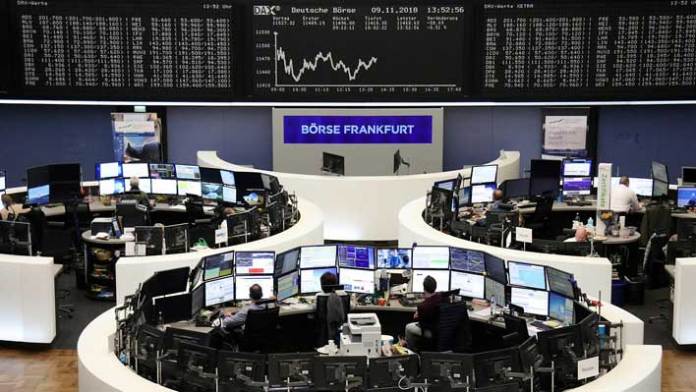
Much of Europe remains off limits to American tourists because of the pandemic, but the region is looking like an attractive destination for stock investors.
While eurozone stocks remain in a slump relative to the U.S. stock market’s record-shattering rebound, they could be poised for solid gains as the global economy continues to reopen, analysts say.
Energy, materials and industrial companies tend to do better when the economy is emerging from a downturn, and are likely to see improved earnings as businesses reopen. And Europe has a bigger share of stocks in these categories than Wall Street.
These types of companies, known as cyclical stocks, also tend to benefit when inflation rises, something that analysts expect will happen as the global economy strengthens.
“When we move from surviving the pandemic to thriving in the rebound, European stocks ought to do better,” said David Kelly, chief global strategist, J.P. Morgan Asset Management.
Betting on stocks that rely on a growing economy may sound unwise in the middle of a recession and pandemic with no clear end in sight. That’s why investors this year have doubled down on tech companies that provide everything from streaming video, internet access, smartphones and other electronic devices that people stuck at home due to the coronavirus have come to rely upon.
But the reopening of businesses in Europe, massive government spending and the phasing out of restrictions on public life have stoked expectations that the region’s economy will recover more rapidly than the U.S.
“The region sports a robust health infrastructure, exposure to a pickup in global growth and galvanized policy response with room for more stimulus,” BlackRock investment strategists wrote in a research note last month. “As a result, we see it offering better risk-reward than traditional beneficiaries of a growth pickup: emerging markets.”
In a follow-up note this week, BlackRock said it still expects cyclical European stocks to make gains, even as some countries have renewed lockdowns to contain a resurgence in the virus.
Eurozone stocks don’t look so attractive when compared to how U.S. equities are doing this year. The S&P 500 index is up 7.4%, while the Stoxx Europe 600 index, excluding companies in the United Kingdom, is down 5.6%.
Still, that’s not stopping investors from taking the plunge. Two of the biggest Europe-focused exchange-traded funds, or ETFs, have seen inflows surge this summer, partly reversing a big outflow in March, April and May.
The Vanguard FTSE Europe ETF, which has $12.51 billion in assets under management, has seen about $529 million in inflows so far this month, making it the fund’s best month this year. The MSCI Eurozone ETF, which excludes companies in the U.K. and other European countries that don’t use the euro, had its first inflows this year in June, taking in $486 million, and inflows have continued rising since.
Results from a new Bank of America survey echo the growing interest in European equities. The survey, which was conducted earlier this month and involved 181 fund managers with nearly half a trillion dollars in assets under management, found that respondents’ allocation of Eurozone stocks is now at its highest level since May 2018.
While the fund managers’ stock portfolios remain skewed most heavily toward technology, health care and consumer discretionary stocks, they said they have begun to shift into European stocks and other assets that tend to do better at times of higher inflation, something more than half of the respondents expect to see in the next 12 months.
When inflation appears, it typically shows up in commodity prices, which can help drive earnings growth for industrial, materials and energy companies.
“If we get commodity inflation, then European stocks are going to really outperform,” said Manish Kabra, head of European Equity Quant Strategy for Bank of America Securities.
Even without a big bump in inflation some of the Eurozone companies in the industrial, energy and materials sectors are posting strong equity price gains. German industrial goods and services company Sartorius AG is up 82.4%. this year, while shares in Danish wind energy company Vestas Wind Systems have increased 40.2%. Polish mining company KGHM Polska Miedz SA is up 42% this year.
Of course, no trade is without risk. European stocks’ appeal would unravel should the pandemic worsen, leading to broad business closures and crippling the economic recovery, for example.
“Something could go wrong with the coronavirus response in Europe, or it’s possible no vaccine works,” Kelly said. “If that happens, and Europe and the United States continue to wallow in this crisis, then some of the cyclical argument goes away.”











